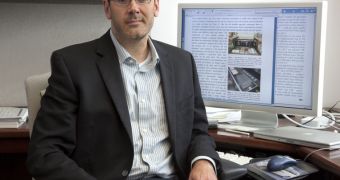Four separate research projects have recently been awarded grant money under the American Recovery and Reinvestment Act of 2009, in order to conduct investigations into new methods of producing electricity in a clean, environmentally-friendly manner. The $8.6 million have been awarded to teams at the US Department of Energy's (DOE) Lawrence Berkeley National Laboratory (Berkeley Lab). The federal government will award a total of $105 million for such research, divided among 37 transformational energy studies.
The four initiatives that have just won funding are being termed by the DOE as “ambitious research projects that could fundamentally change the way the country uses and produces energy.” The first project will look at methods of speeding up the development of materials capable of absorbing the dangerous greenhouse gas carbon dioxide, especially at power plants operating on fossil fuels (oil, coal and natural gas). The second will attempt to find a sustainable and cheap method of using bacteria commonly found in the ground to produce biofuels for various applications.
The remaining two projects are oriented on researching and developing proof-of-concepts for advanced, high-energy batteries. The goal is to obtain devices capable of powering electrical vehicles to the point where they will become able to compete with their diesel- or gas-powered counterparts. All the money is being provided through the DOE’s Advanced Research Projects Agency-Energy (ARPA-E). The agency “is awarding these grants to help our nation build a competitive clean energy industry that will mean jobs, economic growth and a sustainable energy future. Berkeley Lab is proud to be involved in multiple projects that will play important roles in the success of this effort,” explains Paul Alivisatos, the director of the Berkeley Lab.
The carbon capture and storage (CCS) project is awarded about $3.7 million, as its results have the potential to make a marked difference in the amount of pollution power plants emit into the atmosphere every year. The effort is being led by Berkeley Lab Materials Science Division chemist Jeffrey Long. “CCS is already being tested on a big scale and is very close to implementation. This would be the next generation of materials to use in CCS. The current capture process uses huge amounts of energy—roughly 30 percent of the power generated by a power plant. We’re hoping we can get it down to 10 percent,” he explains.

 14 DAY TRIAL //
14 DAY TRIAL //